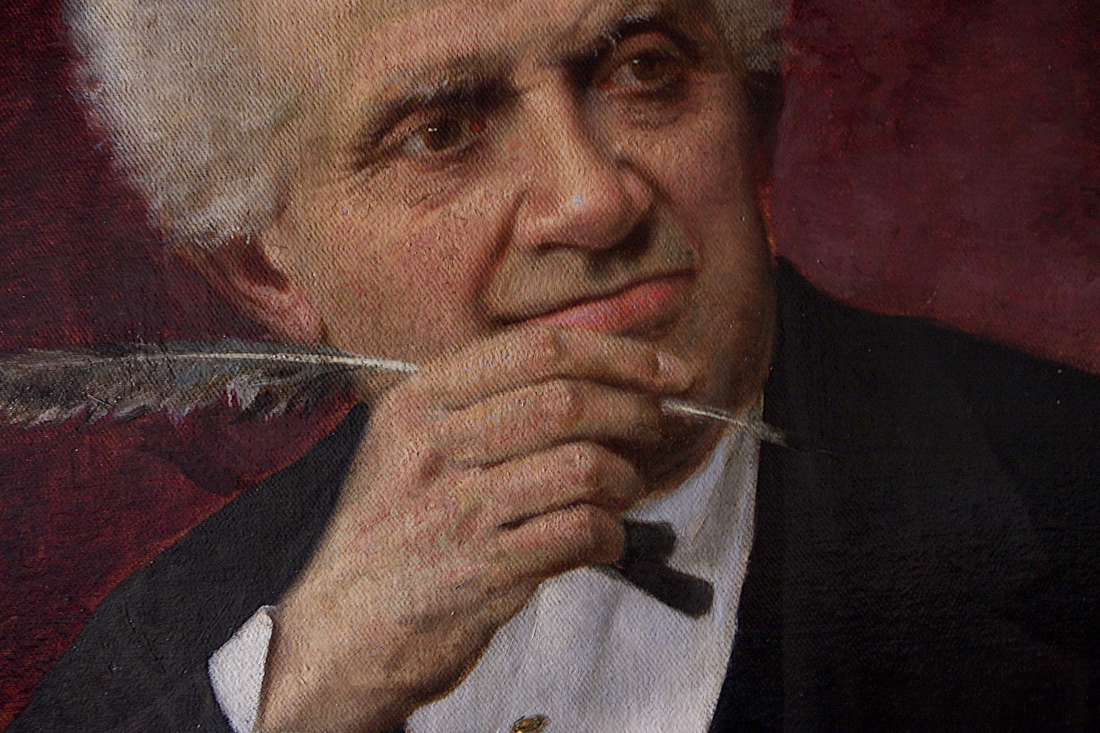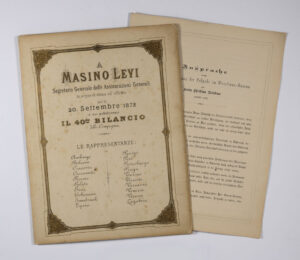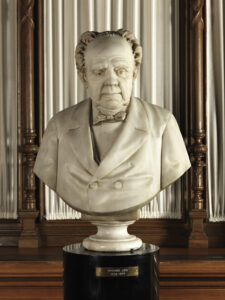Masino Levi the Innovator: Generali’s Expert Executive
26 September 2018
Frugal, foresighted and open-minded, Masino Levi (Ferrara 1795 – Trieste 1879) personified the age-old spirit of Generali in everything he did. A totemic man, Levi was a stabilising force in the company’s history, guiding it through turbulent times such as the wars of independence of the mid-19th century.
After a long time cutting his teeth as an agent in Generali’s Padua office, in 1837 Levi assumed the mantle of Secretary General of the Central Head Office of Trieste, a post he held until 1877. Then, as he himself wrote in his memoirs, Sunto Storico, “having passed my eighty-first year of age, my strength no longer matched my willpower, and I was chosen to become a director”. Levi would hold this position until his passing.
Among his many accomplishments throughout his 40-year career at the head of Generali, Levi dedicated himself to expanding the international side of the business, as well as opening multiple new opportunities: insurance in favour of conscripts (1836), hail (1836), commercial credit (1837), tontines (1850), pension funds for employees (1855) and mortgage guarantees (1857). A specialist with experience gained in the field, Levi was always the first to anticipate and react to changes in the market. His entire life was dedicated to Generali, to such an extent that his memoir was intertwined with that of the company, with very few non-work related personal anecdotes.
Generali’s international branches dedicated a silver cake-stand to him “with admiration and affection” in honour of the company’s fortieth anniversary. This was in recognition not only of his position as the trait d’union between the management (i.e. the directors with decision-making power over strategic affairs) and the rank-and-file employees in charge of the organisation and administration, but also of who he was as a person: a man of ideas and action, and a passionate voice for the international spirit of Generali, without ever straying from its founding principles. Levi presided over a period of consolidation and gradual expansion of the company’s position in its primary expansion in national and international markets. This was achieved through a network of agencies spread throughout Europe which was incredibly extensive for its time, as well as a policy of distributing risk through formalised agreements with other insurance companies. Levi was able to chart a course for the company which would later be adopted permanently, both in Italy and internationally. His work helped to lift the institutional and technical standards of the insurance industry in the territories in which Generali was active, taking it from the primitive and experimental models which dominated in the mid-19th century to the increasingly rapid professionalisation which followed.
Rising from humble origins, Levi was the archetypal self-made modern man, the role-model for a local middle class which was able to grasp the many opportunities afforded by a cosmopolitan city such as Trieste, which had become the economic centre of the Habsburg Empire. He had an experience and wit which had been honed in the field and which were carved into his features. As the sculptor Francesco Pezzicar remarked to his friends upon seeing Levi burying himself in a newspaper at a table in a local café, “the features and intelligent appearance of the man” awoke in him “a desire to reproduce them in marble and chisel into it the vitality which animates him and the intelligence which radiates from him”.
For more information, see A. MILLO, Masino Levi in Generali in History: Tales from the Archives. Nineteenth Century, Venice, Marsilio, 2016, pp. 232-235.



